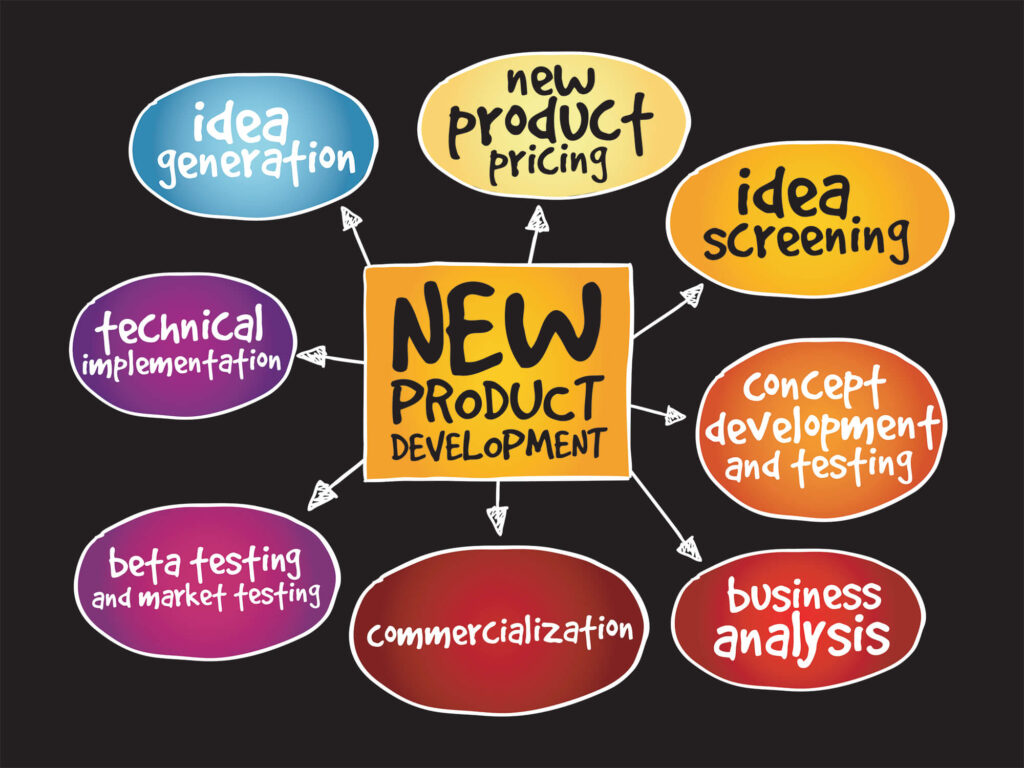Small Businesses Growth using Digital Marketing Excellence
Introduction
Businesses are shifting from conventional brick-and-mortar setups to an online market and in this evolving business landscape, digital marketing has emerged as a transformative force that can propel small companies into the league of industry giants. .
Growth strategies
Every business has the potential to grow, but by leveraging digital marketing strategies and tactics small companies can significantly accelerate this growth. The growth strategies such as market penetration, market development, product development, and diversification, though arduous in the past, can now be executed more efficiently with the help of digital tools and technologies.

Market Penetration Using Digital Marketing
Market penetration refers to the strategy of increasing market share within an existing market by promoting and selling products or services to a larger customer base.
Digital marketing enables in easier market penetration to reach a larger audience than traditional marketing methods.
By leveraging various digital marketing channels such as search engines, social media, email marketing, and display advertising, businesses can connect with potential customers who may have otherwise been out of reach.
Another advantage of digital marketing is its cost-effectiveness compared to traditional marketing methods. Traditional marketing campaigns, such as television or print advertisements, can be expensive and may not yield the desired results.

Digital marketing, on the other hand, offers various cost-effective options, such as pay-per-click advertising or social media marketing, allowing businesses to allocate their resources efficiently.
Furthermore, digital marketing provides businesses with valuable insights and data that can be used to refine marketing strategies and improve targeting efforts. Through analytics tools, businesses can track user behavior, measure campaign performance, and gain valuable insights into consumer preferences and trends.
This data-driven approach enables small businesses to optimize their marketing efforts, ensuring that they are reaching the right audience with the right message.
In conclusion, digital marketing offers small businesses an effectively means to penetrate new markets and expand their customer base. By leveraging various digital channels, businesses can reach a wider audience, increase brand awareness, and drive sales.
Patanjali Ayurved, leveraged the popularity of their founder, Baba Ramdev through digital marketing to build trust and credibility among consumers
Market Development
Market development strategy refers to the process of identifying and entering new markets with existing products or services by reaching out to new customers or target segments.
And One of the key advantages of digital marketing in implementing market development strategies is its ability to reach a global audience. With the internet connecting people from all over the world, businesses can expand their markets beyond geographical boundaries. This allows companies to tap into new customer segments and explore untapped markets that were previously out of reach.
An example of market development to increase business is when a software company decides to enter a new geographical market. For instance, let’s consider a company that specializes in developing project management software.
They have already established a strong presence in their domestic market, but they want to expand their reach and grow their business further.
To achieve market development, the software company conducts market research to identify potential target markets. They analyze factors such as market size, growth potential, competition, and customer needs in different regions. Based on their research, they identify a neighboring country that shows promising potential for their project management software.
Next, the company develops a market entry strategy tailored to the new geographical market. They may need to adapt their product to suit the specific needs and preferences of the target market. For example, the software company may need to translate the software into the local language and ensure it complies with any regulatory requirements specific to the new market.
Once the necessary adjustments are made, the company launches a targeted marketing campaign to raise awareness and generate interest in their software within the new market. They leverage various marketing channels such as online advertising, trade shows, and partnerships with local businesses or influencers to reach potential customers.
To support their market development efforts, the company may also establish local sales teams or partnerships with distributors in the new market. These teams or partners have a deeper understanding of the local market dynamics and can effectively promote and sell the software to potential customers.
Over time, as the software company gains traction in the new market, they can start acquiring new customers and generating revenue from the previously untapped geographical area. The successful market development initiative has allowed the software company to grow their business and increase their market share.

Infosys, HCL Technologies , implemented the market development strategy to expand its operations beyond India. The company entered new markets, such as the United States, Europe, and Australia, to tap into the growing demand for IT services globally. Infosys established strategic partnerships, acquired local companies, and built a strong delivery network to provide customized solutions to clients in these markets. HCL Technologies established delivery centers and formed strategic partnerships with local companies to gain a competitive edge in these markets. product development strategy
product development strategy
Product development strategy involves identifying consumer demands, analyzing market trends, and implementing strategies to develop and launch successful products. In today’s digital era, companies can leverage digital marketing techniques to effectively employ product development strategies.

Digital marketing offers various tools and platforms that enable companies to gather valuable insights about their target audience. Through social media listening, online surveys, and data analytics, companies can understand customer preferences, identify emerging trends, and gain a competitive edge. This information can expedite product development efforts for small companies at a fraction of cost by providing valuable input on features, functionalities, and pricing that resonate with the target market.
Additionally, digital marketing allows companies to test and validate product ideas before investing significant resources into development. By leveraging tools like landing pages, email marketing, and online advertising, companies can gauge customer interest and collect feedback early in the product development process. This iterative approach helps minimize risks and ensures that resources are allocated to ideas with the highest potential for success.
Furthermore, digital marketing enables companies to create buzz and generate excitement around new product launches. Through targeted advertising, social media campaigns, and influencer partnerships, companies can build anticipation and create a sense of exclusivity. T
his not only drives initial sales but also helps in creating a loyal customer base that can provide valuable feedback and insights for future product iterations.
Moreover, digital marketing provides companies with the ability to continuously engage with customers throughout the product lifecycle. Through social media channels, online communities, and email marketing, companies can gather feedback, address customer concerns, and keep customers updated on new product features or enhancements. This ongoing dialogue helps in building customer loyalty and fosters a sense of trust and engagement.
In conclusion, a product development strategy involves the systematic process of creating and enhancing products to meet customer needs. Digital marketing plays a crucial role in this strategy by providing valuable insights, facilitating idea validation, generating excitement, and enabling continuous customer engagement.
By leveraging the power of digital marketing, companies can optimize their product development efforts and increase the likelihood of success in today’s competitive marketplace.



